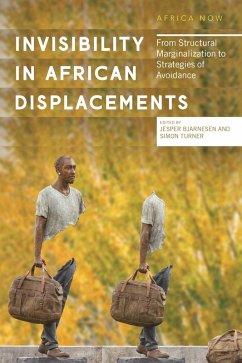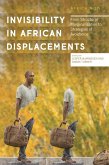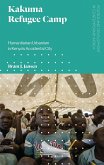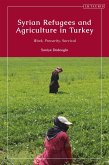African migrants have become increasingly demonised in public debate and political rhetoric. There is much speculation about the incentives and trajectories of Africans on the move, and often these speculations are implicitly or overtly geared towards discouraging and policing their movements. What is rarely understood or scrutinised however, are the intricate ways in which African migrants are marginalised and excluded from public discourse; not only in Europe but in migrant-receiving contexts across the globe.
Invisibility in African Displacements offers a series of case studies that explore these dynamics. What tends to be either ignored or demonised in public debates on African migration are the deliberate strategies of avoidance or assimilation that migrants make use of to gain access to the destinations or opportunities they seek, or to remain below the radar of restrictive governance regimes.
This books offers fine-grained analysis of the ways in which African migrants negotiate structural and strategic invisibilities, adding innovative approaches to our understanding of both migrant vulnerabilities and resilience.
Invisibility in African Displacements offers a series of case studies that explore these dynamics. What tends to be either ignored or demonised in public debates on African migration are the deliberate strategies of avoidance or assimilation that migrants make use of to gain access to the destinations or opportunities they seek, or to remain below the radar of restrictive governance regimes.
This books offers fine-grained analysis of the ways in which African migrants negotiate structural and strategic invisibilities, adding innovative approaches to our understanding of both migrant vulnerabilities and resilience.









